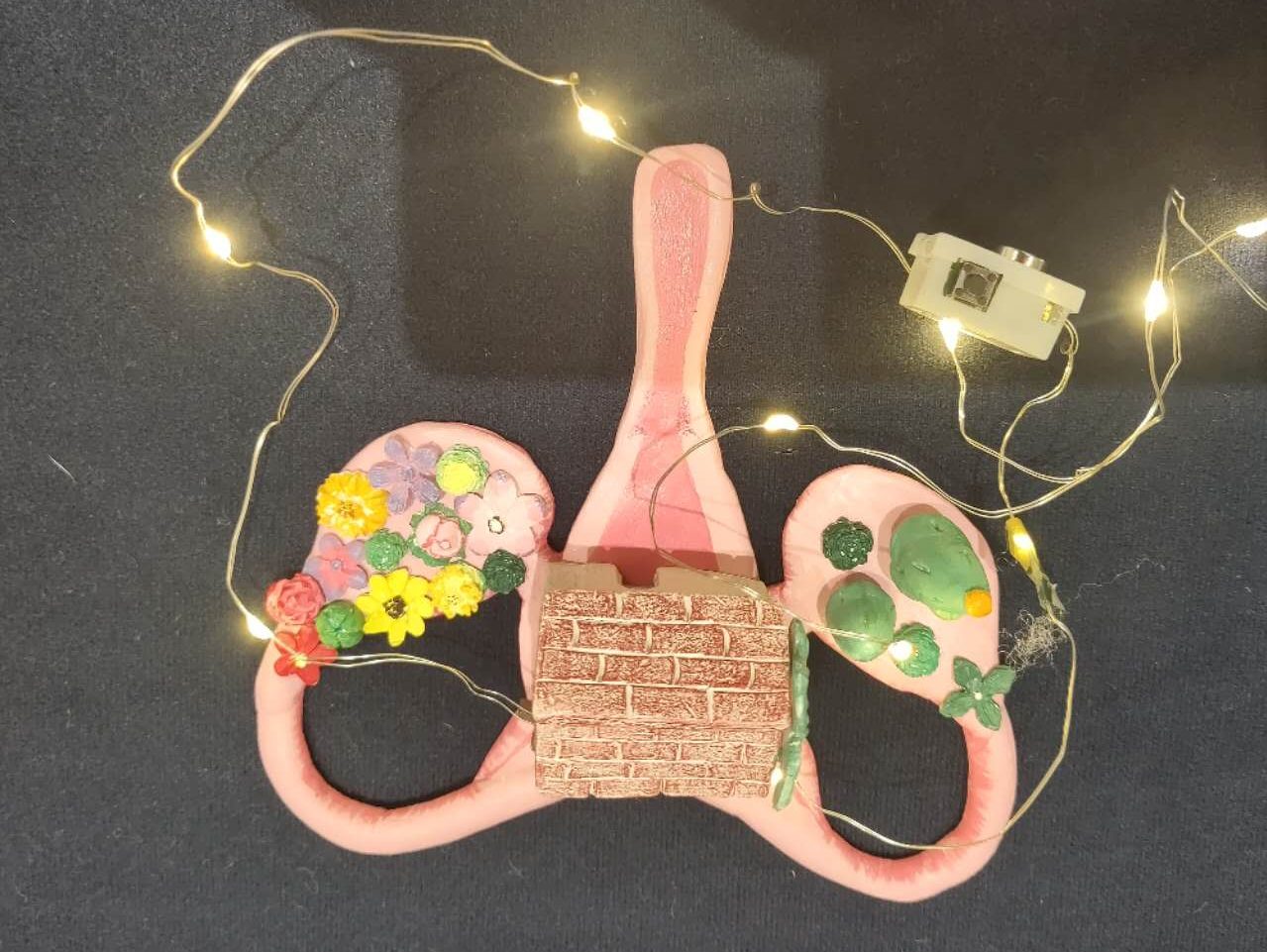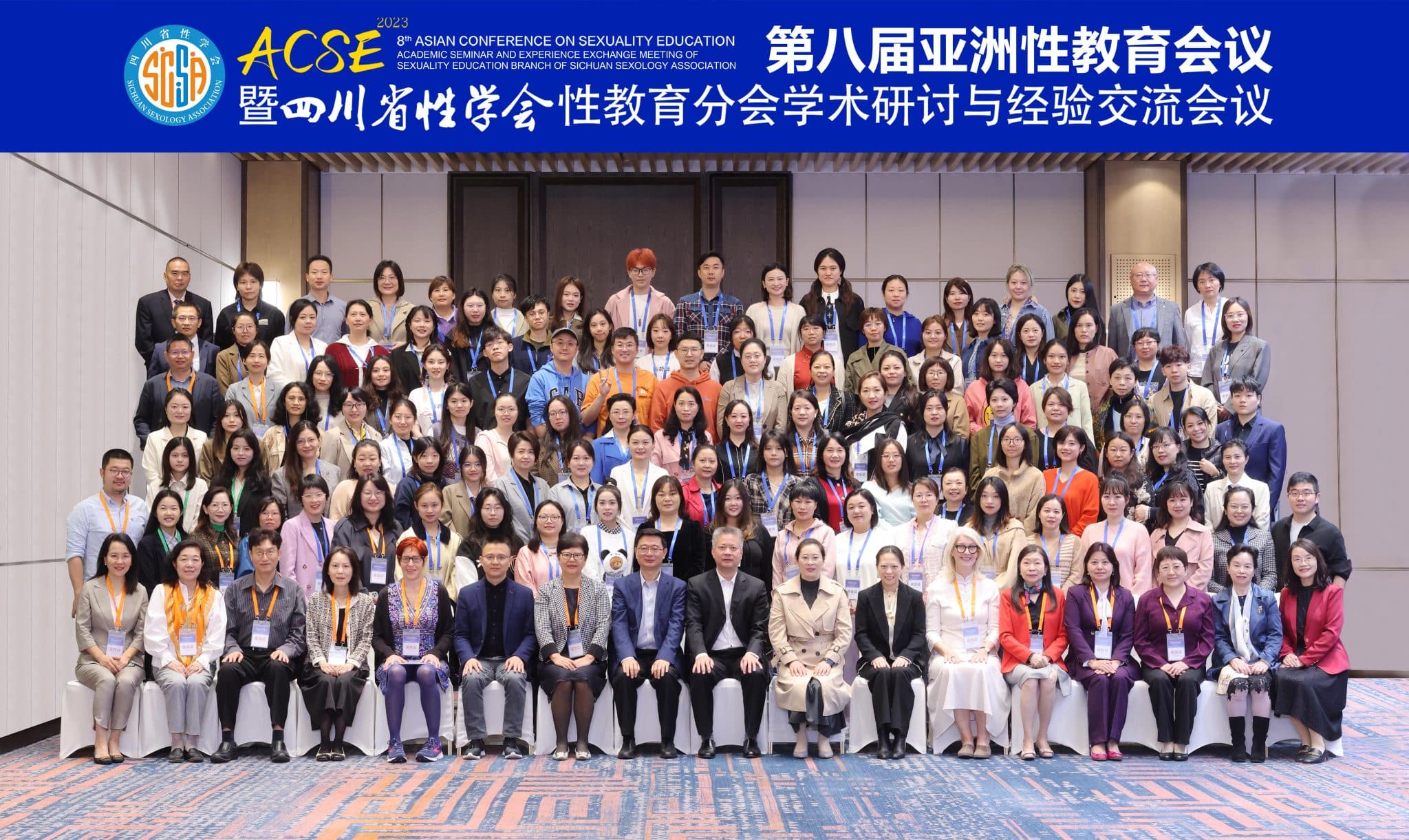Main image provided by Sichuan Sexology Association
How can young people be supported to have happier, healthier, safer, relationships? How to reduce HIV, sexually transmitted diseases, and unwanted pregnancies? How to reduce stigma against people living with HIV? How should we understand and respond to the current era of increased singledom and falling fertility rates? How to make sure that girls, boys, and people of all genders are supported instead of stereotyped and bullied? How to make education more inclusive of LGBT and people with disabilities? How to prevent sex abuse and treat the abused and abusers? How should parents react if their children watch porn?
It’s not often in China – or anywhere – that almost 200 people can get together and discuss these and related questions. The 8th Asian Conference on Sexuality Education provided a rare platform to do so.
The first Asian Conference on Sexuality Education was held in 2001, and they have been held since at three yearly interviews in Beijing, Chengdu, Gaoxiong, Hong Kong, and Tokyo. Last month, from 19-22 October the Eighth Asian Conference on Sexuality Education was held in Chengdu, on the theme of “Holistic Caring Sexuality Education – Internationalisation and Localisation”. Almost 200 people took part from the health and education sectors, social organisations, including youth organisations, teachers, and students, from mainland China, Taiwan, Hongkong, Chinese working and studying overseas, as well as two Europeans, of which I was one.

The Sichuan Sexology Association convened the meeting, Chengdu University and the Sexuality Education Section of the Sichuan Sexology Association co-hosted, in association with the Chengdu University Institute of Teaching and the Sichuan Province Youth Sexuality Education Popularisation Base, with support from UNFPA. The conference included plenaries, breakout sessions, a round table, a sexuality education poster and art competition and exhibition, and essay prizes. Topics covered sexuality education in schools, communities, online and offline, with people of all ages, ranging from kindergarten to the elderly. Many participants expressed – during the conference and in subsequent WeChat messages – gratitude and excitement that this event was able to take place.
Internationalisation and localisation
In a participatory exercise in the plenary, participants were asked to stand up if they had drawn on any ideas, texts, frameworks etc. from outside China in their sexuality education work. About half the audience stood up. They were then asked to stay standing if they had adapted these international sources for their contexts. No one sat down. Clearly participants brought experience of internationalisation, and this always came with some kind of localisation. They were then invited to reflect if the internationalisation and localisation helped their sexuality education address inequalities around gender, age, disability, ethnicity etc.
We live in a multidirectional globalised world in which China is a major power. An analysis of sexuality study publications in English, based on numbers of articles published and citations according to authors’ country, shows China ranks 7th globally for producing sexuality studies in English.[i] This is just one channel through which Chinese are sharing internationally their rich experience in this area.
I was invited to present on decolonising sexuality education.[ii] Colonialist legacies and ongoing global East-West inequalities impact on sexuality. For example, the British imperial state introduced laws outlawing homosexuality into several Asian countries, which in some countries are still on the books. At the same time nationalists deploy anti-colonialist rhetoric for populist purposes, such as India’s former health minister Harsh Vardhan calling for a ban on sexuality education, on the grounds it was a Western import, and to teach yoga instead. Sexuality educators need to respond to this contradictory picture by tackling power dynamics and inequalities on multiple levels.[iii]
Is it getting easier or harder to do sexuality education in China?
Several organisations participating in the Conference have succeeded in taking sexuality education to scale and impact. The Sichuan Province Youth Sexuality Education Popularisation Base, led by Gou Ping, has reached a total of over half a million beneficiaries nationwide through teaching and training teachers, students and parents.[iv] The “You and Me” program has live streamed classes into school on a huge scale, effectively increasing knowledge and supporting healthier attitudes.[v] The “Cherish Life” curriculum has been taught widely in kindergartens, primary and secondary schools over several years, including in migrant schools and areas in poverty, with longitudinal evaluations showing significant impact.[vi] Harbin Medical University’s Sexual Health Research and Education Centre, founded by Peng Tao, teaches sexuality education to future doctors, influencing the health sector.
Several policies and regulations now give schools a mandate to provide sexuality education including the 2020 revision of the Law on Protection of Minors, the State Council’s Outline on the Development of Chinese Children (2021-2030), and the National Guidelines on Family Education (2019 revision). Is it getting easier to do sexuality education in China? I asked this question to several participants. Tao Lin, chair of Tao Xingzhi Research Association Adolescent Education Committee, replied that “It’s easier in the sense that policy frameworks now provide a mandate, and the need for sexuality education is popularly accepted due to increasing media reporting on sexual abuse. However, how to do sexuality education is still contested.” Schools in China tend to offer abstinence education instead of comprehensive sexuality education,[vii] despite extensive research demonstrating the ineffectiveness of the former.[viii]
A comprehensive set of guidelines on goals and content provides evidence-based guidance in this contested space. Liu Wenli presented on the adaptation of the United Nations ‘International Technical Guidance on Sexuality Education’ for Chinese contexts in an extensive four-year consultation. The process included researching Chinese policy frameworks, consulting with Chinese sexuality education providers, and reviewing Chinese research on the subject.[ix] The resulting ‘Comprehensive Sexuality Education Technical Guideline: Adaptation of Global Standards for Potential Use in China’[x] was launched in 2022 in Chinese and English.
The reality remains that despite policy mandates, parents may still see sexuality education as controversial, schools may focus more on exam subjects than on sexuality education and well-being, and time and resources allocated for sexuality education may be limited. Sexuality education expert Li Hongyan asked the question, what do you do if you are only given one hour to teach about this rich and diverse dimension of life? She advised that people don’t always remember what they are taught, but if the teaching engages with the emotions, the feelings may stay with them. If she only had one hour, she would do a participatory exercise which gives students an experience of a relaxed, equal, caring, respectful, and harmonious interaction, an experience to draw on in their future sexual relationships.

[i] Luo, M., Chen, G., He, Q., & Qi, S. (2022). Knowledge production and epistemic politics: A scientometric review of Chinese sexuality studies in English-language academia. Chinese Journal of Sociology., 8(3), 330–354. https://doi.org/10.1177/2057150X221111523
[ii] Jolly, Susie, 2022, Decolonising sexuality education, https://www.newsecuritybeat.org/2022/09/decolonising-sex-education/
[iii] Jolly, Susie, 2022,英国性教育的去殖民化, https://mp.weixin.qq.com/s/3BMA0KJbFuUjgh4NLNMDwA
[iv] 苟萍,四川省青少年性教育普及基地简介,2023
[v] Minne Chen, Catherine Zimmer, Sizhe Huang, Rui Tian, Boya Yang, Meibao Li, The effectiveness of an online sexuality education module in promoting sexual knowledge and attitude change: a cluster randomized controlled trial, Health Education Research, Volume 38, Issue 2, April 2023, Pages 119–138
[vi] SU R,GUO L,TANG H,YE P,ZHANG S,XIAO Y,LIU W,* LIU C.* Comprehensive sexuality education weakens the effect of in-group bias on trust and fairness[J].Sex Education,2020,20(1):33-45.
[vii] ibid
[viii] Sarah Denford, Charles Abraham, Rona Campbell & Heide Busse (2017) A comprehensive review of reviews of school-based interventions to improve sexual-health, Health Psychology Review, 11:1, 33-52, DOI: 10.1080/17437199.2016.1240625
[ix] LIU W, LI J, LI H, ZHENG H*. Adaptation of global standards of comprehensive sexuality education in China: characteristics, discussions, and expectations[J]. Children, 2023,10(2):409-420.
[x] https://china.unfpa.org/sites/default/files/pub-pdf/cse_technical_guideline_-adaptation_of_global_standards_for_potential_use_in_china_0.pdf



